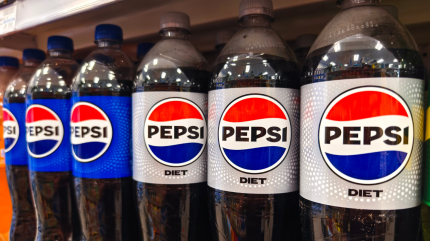
PepsiCo CEO Ramon Laguarta has said the US consumer is “much more price conscious” and demand is suffering after years of price hikes.
The Mountain Dew owner reported that its PepsiCo Beverages North America (PBNA) division saw volumes fall 3% year-on-year during the company’s second quarter as a result of faltering demand.
Speaking to analysts after PepsiCo reported its second-quarter financial results yesterday (11 July), Laguarta said: “This need for value or more value consciousness I think is impacting every household in the US. It is different levels of income. I think it’s impacting everybody.”
The PepsiCo chief executive stressed the US consumer’s hunt for “value” is the “problem to address”.
He said: “I think once we address that situation, we will be back in growth, and we feel pretty good about the tools and the resources we have and the actions that we’re taking and we’re quite encouraged by [the] recent performance of the business.”
Laguarta told analysts that PepsiCo is in a position to “give some value back” to the consumer in the second half of this year, alongside further investments in marketing and “better execution”.
However, the PBNA division saw a 24% jump in operating profit for the period, reaching $987m. Its net revenue grew 1% to $6.81bn.
Laguarta said: “We’ve been accelerating the profitable growth delivery of the business, and that should continue in the second half. We’re investing in advertising and marketing even more, in the platforms that are growing, and that’s what, overall, if we put it all together, we feel good about the second half of the year and the momentum that we will start 2025 with that.”
He specified that the zero sugar variants which PepsiCo makes – like Pepsi Max and Mountain Dew Zero – have been “booming” and the company plans to “scale” that portfolio further. Moreover, the US-based business is focusing on the “functional hydration space” and its foodservice business to further its profits.
The chief executive remained coy when asked about his thoughts on Carlsberg’s recent move to take over UK soft-drinks manufacturer Britvic, which is currently PepsiCo’s UK and Ireland co-bottler.
Speaking on plans for further bottling consolidation, Laguarta said: “Now are there other opportunities to scale up some of our bottlers. Of course, there’s always opportunities to improve the infrastructure, and we’re working on that for the long-term, but I think this is a part of our business that is going well.”
PepsiCo adjusted its guidance for full-year revenue to growth of approximately 4% on an organic basis. The business previously forecast growth of “at least 4%”.
Callum Elliott, an analyst at AllianceBernstein, said: “This is unlikely to be good enough for these results to be the ‘clearing event’ that long-term shareholders were looking for, in our view, and fears of a further cut are likely to persist through Q3.”
In the second quarter, the company generated organic revenue growth of 1.9% to $22.5bn, while operating profit jumped year-on-year from $3.66bn to $4.05bn.
The company’s net income rose from $2.75bn in the second quarter of 2023 to $3.08bn this time around.



